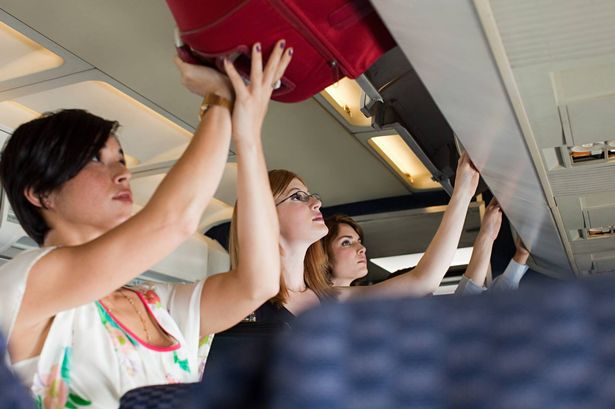Top Stories
Travel Experts Warn Against Risks of ‘Last to Board’ Strategy

Many travelers are embracing a popular strategy known as the “last to board” hack, which they believe can enhance their flying experience. This approach is predicated on the idea that delaying boarding allows passengers to spot empty seats and potentially gain extra legroom while avoiding the hassle of navigating the aisle as fellow travelers settle into their seats. However, travel expert Silvena Nonev from Scandinavia Private Tours warns that this tactic can lead to significant inconveniences that could mar a holiday.
As travelers become increasingly reliant on social media for travel tips, the appeal of the last boarding strategy is evident. It promises a chance to avoid the crowds and secure a better flying experience. Nevertheless, Nonev emphasizes that the reality of this method can be quite different from expectations.
Risks of Waiting Until Last
One of the primary issues with boarding last is the limited availability of luggage space. By the time latecomers board, most overhead bins are already full. Nonev explains, “That leaves latecomers scrambling to find room wherever they can, which often means their bag ends up several rows away from them.” This situation can quickly escalate if all overhead storage is taken, as passengers may be forced to check their cabin bags at the gate, leading to further complications.
“When this occurs, you lose access to your essentials during the flight and you’ll have to wait at baggage claim once you land,” she added. This can create an unanticipated and stressful start to what should be an enjoyable getaway.
Passengers also frequently overlook the potential for airlines to reassign seats. Boarding late increases the likelihood of being asked to swap seats so families can sit together or for cabin balance. “If you’ve paid extra for a particular seat, or you were hoping for peace and quiet, losing it can be very frustrating,” Nonev cautioned.
Better Alternatives for Travelers
To avoid the pitfalls associated with last-minute boarding, Nonev suggests that proper preparation is vital. Many airlines offer free priority boarding to members of their loyalty programs, while certain credit card providers also extend early boarding benefits. Utilizing these options can alleviate the chaos of rushing to board the plane.
Furthermore, passengers can often select their preferred seat in advance, whether they desire extra legroom in the exit row or a quieter area at the front of the cabin. Nonev encourages travelers to take advantage of resources that review aircraft seat layouts, enabling informed decisions based on flight duration and personal preferences.
For those concerned about overhead luggage space, Nonev has a straightforward recommendation: “If you pack a smaller bag that can slide under the seat in front, you’ll never be forced to check it in.” She advises travelers to carefully consider what they truly need for the flight, allowing for a more stress-free travel experience.
Ultimately, while the “last to board” hack may seem appealing, it carries risks that could lead to unnecessary complications during travel. By adopting smarter boarding strategies and preparing in advance, travelers can ensure a smoother journey without the potential pitfalls of delayed boarding.
-

 Health3 months ago
Health3 months agoNeurologist Warns Excessive Use of Supplements Can Harm Brain
-

 Health3 months ago
Health3 months agoFiona Phillips’ Husband Shares Heartfelt Update on Her Alzheimer’s Journey
-

 Science1 month ago
Science1 month agoBrian Cox Addresses Claims of Alien Probe in 3I/ATLAS Discovery
-

 Science1 month ago
Science1 month agoNASA Investigates Unusual Comet 3I/ATLAS; New Findings Emerge
-

 Science4 weeks ago
Science4 weeks agoScientists Examine 3I/ATLAS: Alien Artifact or Cosmic Oddity?
-

 Science4 weeks ago
Science4 weeks agoNASA Investigates Speedy Object 3I/ATLAS, Sparking Speculation
-

 Entertainment4 months ago
Entertainment4 months agoKerry Katona Discusses Future Baby Plans and Brian McFadden’s Wedding
-

 Entertainment4 months ago
Entertainment4 months agoEmmerdale Faces Tension as Dylan and April’s Lives Hang in the Balance
-

 World3 months ago
World3 months agoCole Palmer’s Cryptic Message to Kobbie Mainoo Following Loan Talks
-

 Science4 weeks ago
Science4 weeks agoNASA Scientists Explore Origins of 3I/ATLAS, a Fast-Moving Visitor
-

 Entertainment4 months ago
Entertainment4 months agoLove Island Star Toni Laite’s Mother Expresses Disappointment Over Coupling Decision
-

 Entertainment3 months ago
Entertainment3 months agoMajor Cast Changes at Coronation Street: Exits and Returns in 2025









